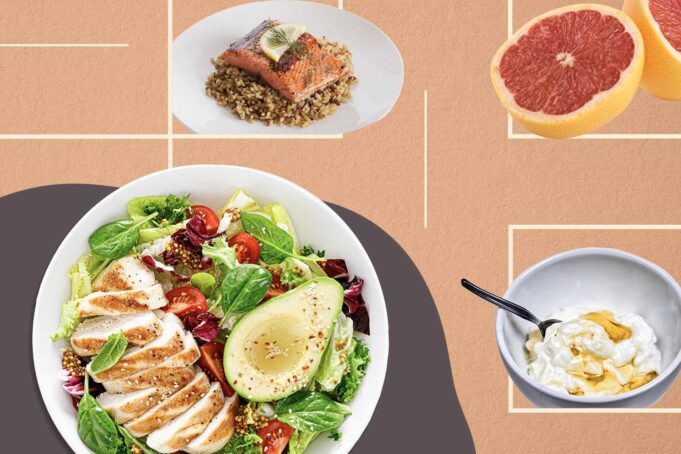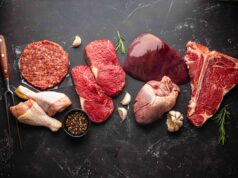Surgery for gastric bypass can frequently save lives. You should anticipate losing weight more quickly than ever, reducing the number of comorbidities (some as soon as after surgery), and perhaps feeling and looking better than you ever did. To be successful (long-term), however, you may need to alter some behaviors, including your food choices.
Why Having a Diet Plan is Important
The first step toward making good food choices after surgery is understanding what you can and cannot consume. Your pre bariatric surgery diet for the first several weeks is crucial for two reasons.
- Your safety. Certain foods may place too much pressure on your stomach as it heals.
- Establishing a new, protein-focused eating regimen. Fortunately, your appetite levels change quickly after surgery, and most individuals don’t experience hunger in the same way they did before. A bariatric surgery diet makes it easier to stick to the diet plan after surgery than following any other diet you’ve ever attempted.
What to Eat
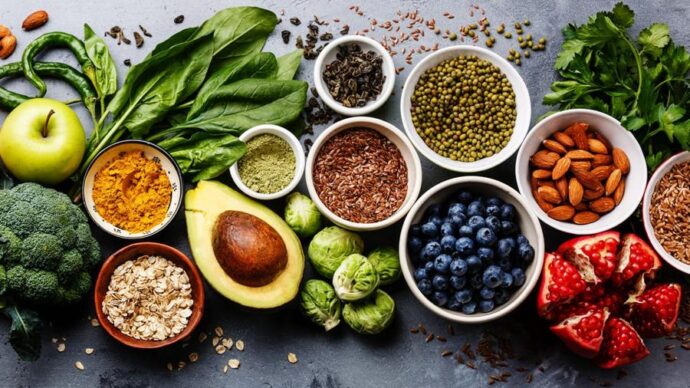
The majority of the pre-op diet consists of protein drinks and other low-calorie, high-protein foods that are simple to digest.
Muscle tissue benefits from protein’s ability to support and safeguard it. Eating protein may encourage your body to use fat for fuel rather than muscle. Additionally, protein keeps your body strong, which speeds up recovery.
You should stick to a diet that is primarily liquid or liquid-only as your surgery date approaches. Your doctor might allow you to consume solid foods depending on your weight and general health. These might contain soft-boiled eggs, salmon, or watered-down hot cereal.
Liquid Diet Before Operation

Most surgical facilities advise following a pre-op liquid diet to lessen the amount of fat around the liver and spleen. Usually, 7–14 days before gastric bypass surgery, a preoperative liquid diet is required. Your surgeon will perform the procedure on the area of your stomach where your liver is located. During the process, it could be more challenging for the surgeon to see your stomach if you have a large liver. The risk of undergoing gastric bypass surgery increases if the liver is overly enlarged. The procedure might then be postponed and rescheduled in some cases.
The following foods will probably be included in the 1-2 week pre-op diet, but be careful to adhere to your doctor’s instructions:
- Meal replacement shakes or protein shakes will make up most of your diet during this time.
- You can also consume cream of wheat or cream of extremely thin rice.
- V8 and vegetable juice are acceptable.
- No carbonated or caffeinated beverages are allowed.
- Soup with no solid pieces of food may be consumed.
- Only sugar-free beverages are permitted (sugar substitutes are okay).
- Lean meat and/or vegetables, one or two portions per day, may be allowed, but only if your surgeon or registered dietitian approves them.
High Protein Meal

Your body will enter the ketosis state before surgery during the pre-op phase. A high-protein meal enables your body to utilize your fat reserves as an energy source. As a result, your liver’s fat quickly starts to decrease significantly.
Pre-opt Reminders
Discuss with your doctor whether you should stop taking any drugs before surgery. The following medications should usually be stopped a week before surgery, and a dose reduction may be necessary.
- Coumadin
- Steroids
- Motrin, Aspirin, Advil, Celebrex, and any other NSAIDs
- Birth control
- Replacement hormones
- Other anti-coagulation medications
Before surgery, buy vitamins and supplements. Find a protein shake you enjoy the flavor of, but remember that following surgery, your taste preferences may vary, so you may want to keep a few alternative brands available.
If you smoke, you should stop before the procedure. Smokers are more likely to get blood clots and other complications during and after surgery. A few weeks before the procedure, plan and carry it out.
6 Months Pre Bariatric Surgery Diet
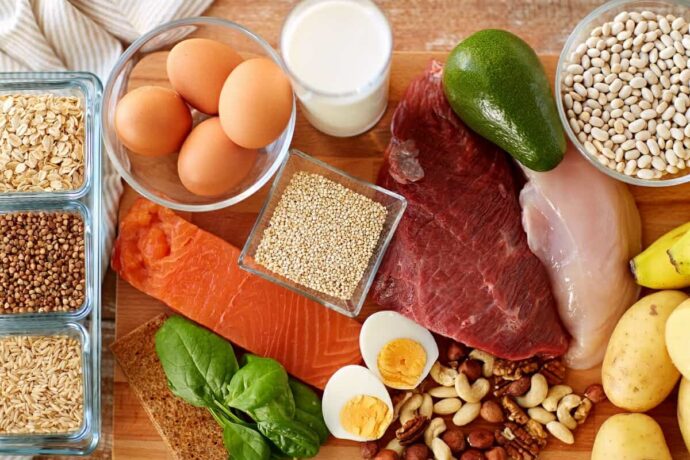
You can start working on your diet and fitness before your initial meeting with a surgeon if you are considering having weight loss surgery. Your chances of having a successful surgical outcome increase the earlier you start. If you need assistance starting your 6-month pre-bariatric surgery diet, speak with a qualified nutritionist.
Here are ten valuable tips for your pre-op diet plan.
- Start practicing meal portion control.
- Choose foods that are easy to chew and digest
- Focus on eating while you are having a meal and enjoy each bite
- Cut food into tiny bites and chew it thoroughly before swallowing.
- Eat at predetermined intervals and avoid snacking and grazing.
- Start limiting the intake of solid foods and focus more on a pureed diet.
- Start minimizing added fats, oils, and salt in your food.
- Follow tasty pre-bariatric surgery diet recipes to improve compliance.
- Drink around 6 to 8 glasses of water daily, and don’t mistake thirst for hunger.
- Increase lean proteins in your six-month pre-bariatric surgery diet.
3 Months Pre Bariatric Surgery Diet
Your three-month pre-bariatric surgery diet plan’s scientific balance and level of adherence will determine how well it will prepare you for your upcoming weight loss operation.
- Keep a daily record for three months while adhering to a 1,200-calorie pre-bariatric surgery diet, and discuss your meal choices with your surgeon or nutritionist. Incorporate a variety of fruits, vegetables, unprocessed carbs, lean proteins, and unsaturated fats into your diet.
- For the best results, continue to limit or avoid the following foods and beverages during the three months before your bariatric surgery: full-fat dairy products, full-fat meats, fried and processed foods, sugary desserts, baked goods, alcohol, carbonated drinks, coffee, sugary sauces and marinades, and snacks like chips, cookies, bagels, croissants, and full-fat salad dressings.
Choosing Right Foods
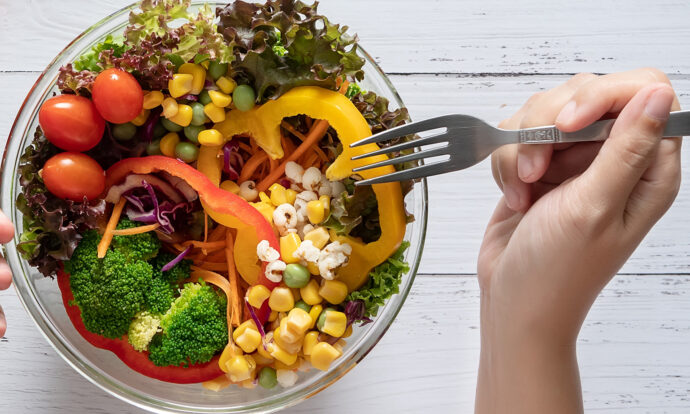
You’ll want to choose foods high to moderate in protein, carbohydrates, and moderate to good fats.
Foods with good (healthy) fats include:
- avocados
- nuts
- salmon
- sardines
- coconut oil
- nut butter
General guidelines include:
- Choose lean meats.
- Canned tuna and salmon.
- Avoid greasy and spicy foods.
- Shop for healthy foods.
- Plan your meals.
- Avoid whole milk.
- Eat nutrient-dense foods (whole fruits, vegetables, meats, eggs).
- Involve your family in healthy eating decisions.
- Limit or eliminate desserts.
- Eliminate fast food.
- Eat out only on occasion.
- Give at least 30 minutes between your water and food
- Introduce new foods slowly.
- Take quality nutritional supplements/vitamins.
Conclusion
Gastric bypass surgery is a proven way to help people lose weight and reduce the complication that goes with obesity. Thus, proper consultation with a surgeon and nutritionist pre-bariatric surgery diet will be helpful. Moreover, it is crucial to follow and stay on the eating plan for an effective result.

